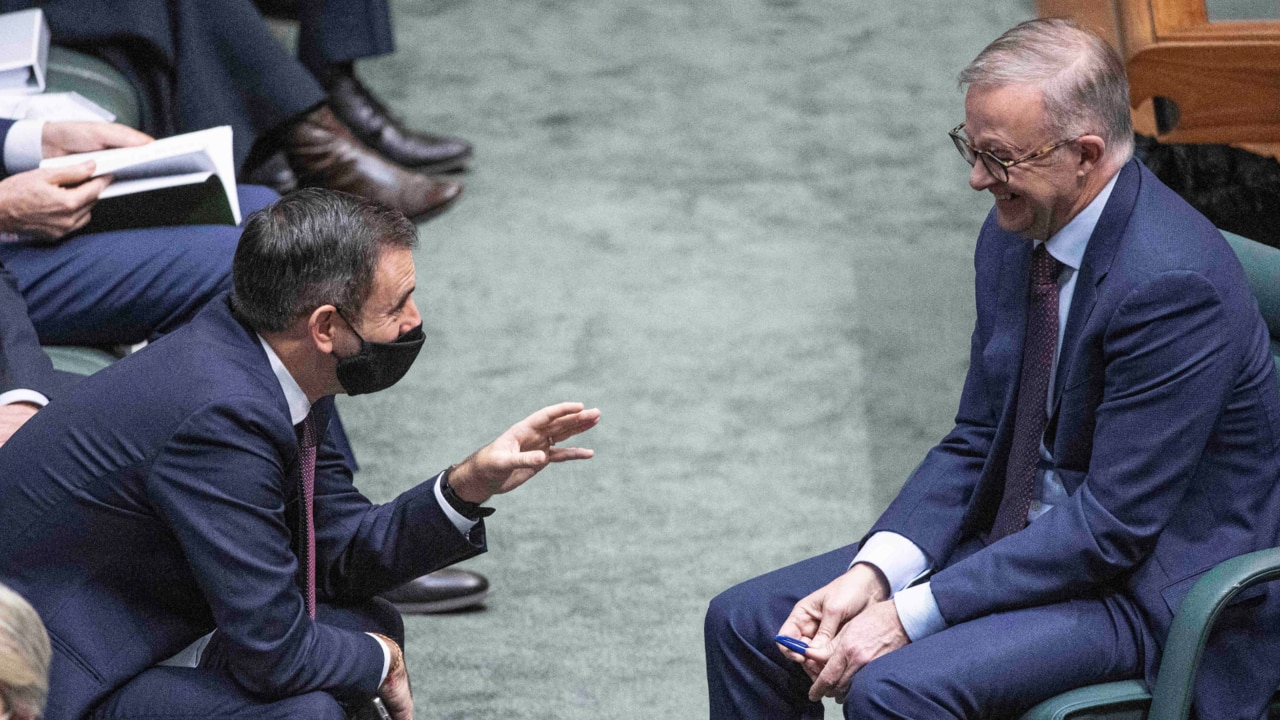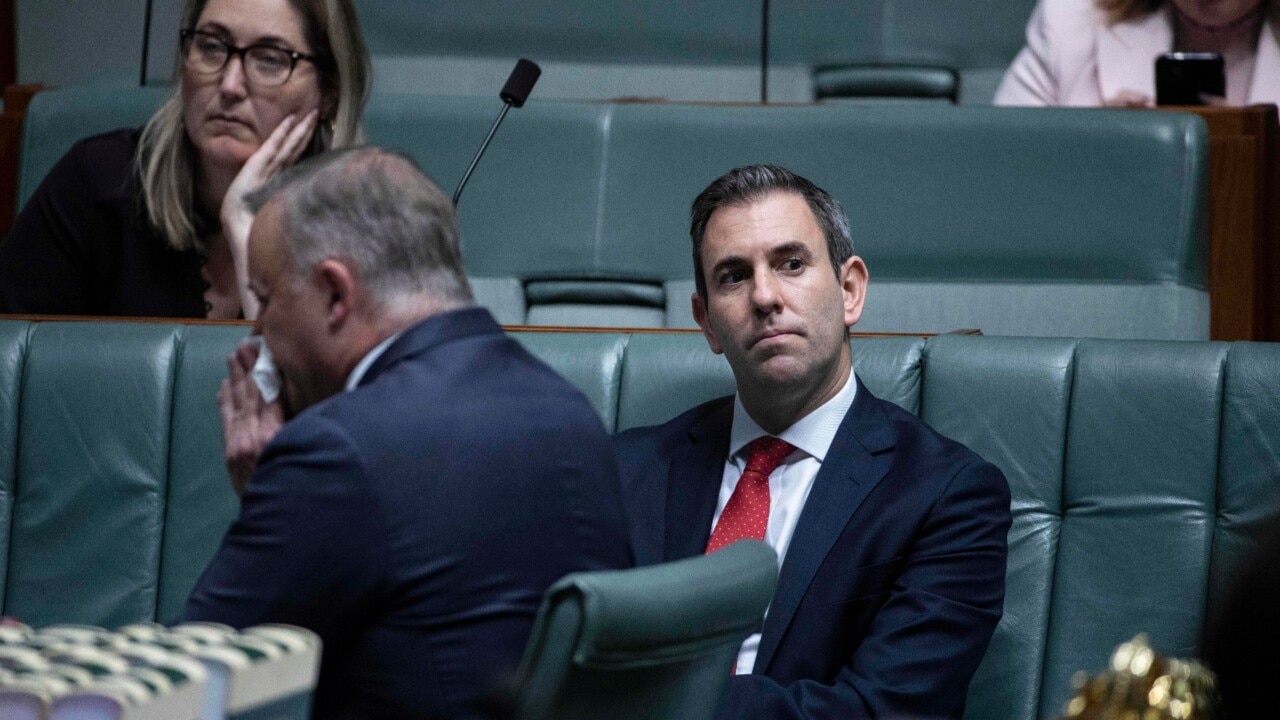Financial advisers warn tinkering with super adds complexity
The move diminishes the appeal of super as a savings vehicle and, in some cases at least, could end up being retrospective, financial advisers warn.

Financial advisers have warned on the impact of Labor’s plans to cut superannuation tax breaks for wealthy Australians, saying the move diminishes the appeal of super as a savings vehicle and, in some cases at least, could end up being retrospective.
The Federal Government on Tuesday outlined plans to crack down on nest eggs of $3m-plus, with a concessional tax rate of 30 per cent to be applied to earnings for balances above this level from 2025. Currently, earnings from super in the accumulation phase are taxed at a concessional rate of up to 15 per cent.
The changes will impact about 80,000 Australians, will not be applied retrospectively and will come into effect after the 2025 federal election, Prime Minister Anthony Albanese said.
But financial adviser Olivia Maragna, co-founder of Aspire Retire Financial Services, warned the tax rate increase would heap complexity on the system, as she questioned the government’s line that it would not be retrospective.
“It adds an enormous amount of complexity, but it also comes with issues. They’re saying it’s not retrospective, but if you’ve got an unrealised capital gain in your super fund, and you don’t realise that capital gain until after 2025, then you’ll pay that (higher) tax on growth that you received before 2025,” Ms Maragna told The Australian.
“So it’s not technically retrospective but if they don’t fix that issue then it is retrospective … What we would want to see from the government is the ability for members to reset the cost basis, so that if an asset that was bought for $1m is worth $4m come July 1, 2025, then $4m is its new cost base.”
This is similar to what the former government did when it brought in super changes in 2017.
Putting the $3m as a per-member cap would also disadvantage some savers over others, Ms Maragna warned.

“If you’ve got someone with $4m sitting in super versus two people (in a single SMSF) with $2m each, then one person is being penalised but others aren’t.”
Paul Nicol of GFM Wealth Advisory said he was already fielding calls from clients concerned about the impact of the changes.
“They very much see this as a moving of the goalposts and I think there’s going to be unintended consequences here,” he warned.
“Among the most obvious … is that we could certainly see that for those with super account balances above $3m, there could be an exit of money from the super system.”
The move to make super less attractive could see a resurgence in family trusts, Mr Nicol added.
“There could be some real trouble for those with lumpy assets in their super fund and I think possibly trusts might come back or be a consideration for those who might want some of their excess above $3m to exit the super system.”
While retirees will be able to yank money out of super if they can find a more tax effective vehicle outside the system, savers below preservation age will be stuck with no option but to pay the higher 30 per cent rate on their savings, Ms Maragna added.
But the greater issue is the constant tinkering with super rules, she said.
“It’s the message that these changes bring to younger people. Does it turn them off super even more? And I think we’ve also got to put it into perspective. This is $2bn out of a $50bn tax concession. So what else are they going to come after?”
“These big balances, it’s not a current issue, it’s a legacy issue … These are balances that have been around forever, but these people will die and the money will be forced out of the super system. The rule changes back in 2017 have already dealt with that issue (by putting the cap of $1.6m on super contributions).”

“They say it’s not retrospective but if we keep changing the goalposts in relation to super, if we keep changing the rules, then you know, you are impacted because you would have done things differently in the past.”
Financial adviser Glen Hare, of Fox and Hare Wealth, said he saw value in the changes for creating a more fair and equitable super system, but that it could also reduce the attractiveness of super as a savings vehicle.
“People may now look at different structures that perhaps have more flexibility than the superannuation environment. So potentially (these structures) might not be as tax effective as super but people may forego that reduced tax concession because of more flexibility, whether it be through a family trust or something like that. So I could potentially see flows out of super, for those for those 80,000 (people affected),” Mr Hare said.
“Will there be a mass exodus on super? I don‘t think so. But will people be as proactive in terms of pumping as much money into super when it hits that $3 million mark? I guess there’s just a little bit more of a question around that now.”
While the prime minister said the $3m would not be indexed, Mr Hare said he would expect this to change in time.
“It’s not indexed now but potentially I see some changes there. In due course I think it will be indexed but initially I think it’s just about getting it across the line.”
Chartered Accountants ANZ also took aim at the proposed changes, saying they punished those who followed the rules.
“The target of these changes is a relatively small number of people who played by the rules which the government at the time set and kept for about 20 years between the late 1980s and 2006 against the advice of the industry,” superannuation and financial services leader Tony Negline said.
“Investing in superannuation in this country is like trying to shoot a moving target flying in circles over shifting goalposts.”
More Coverage








To join the conversation, please log in. Don't have an account? Register
Join the conversation, you are commenting as Logout